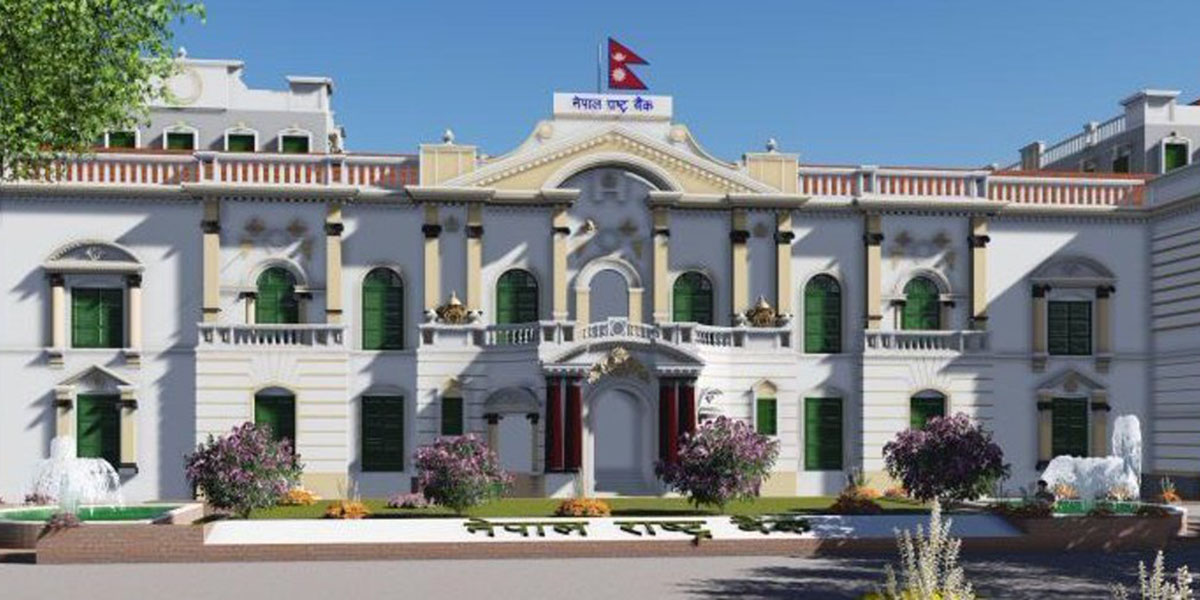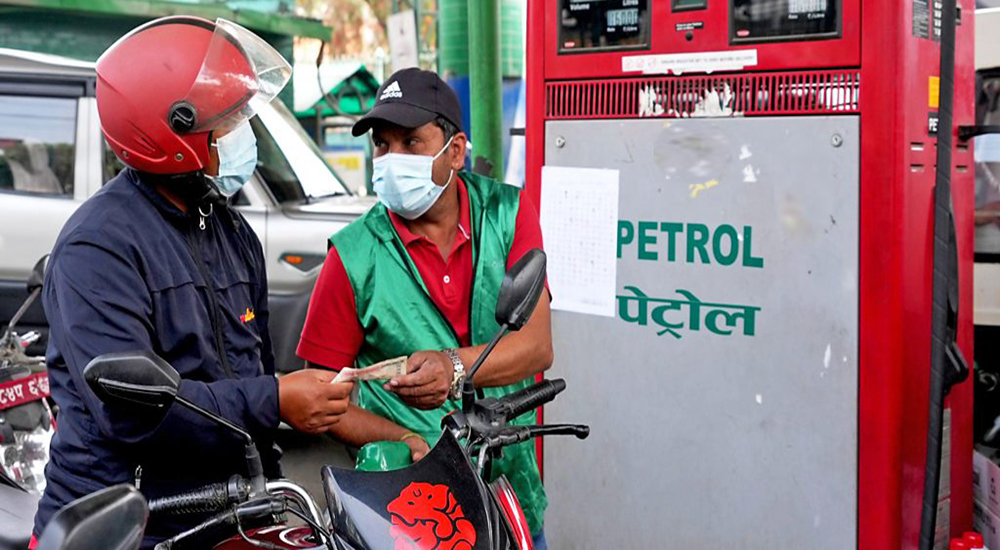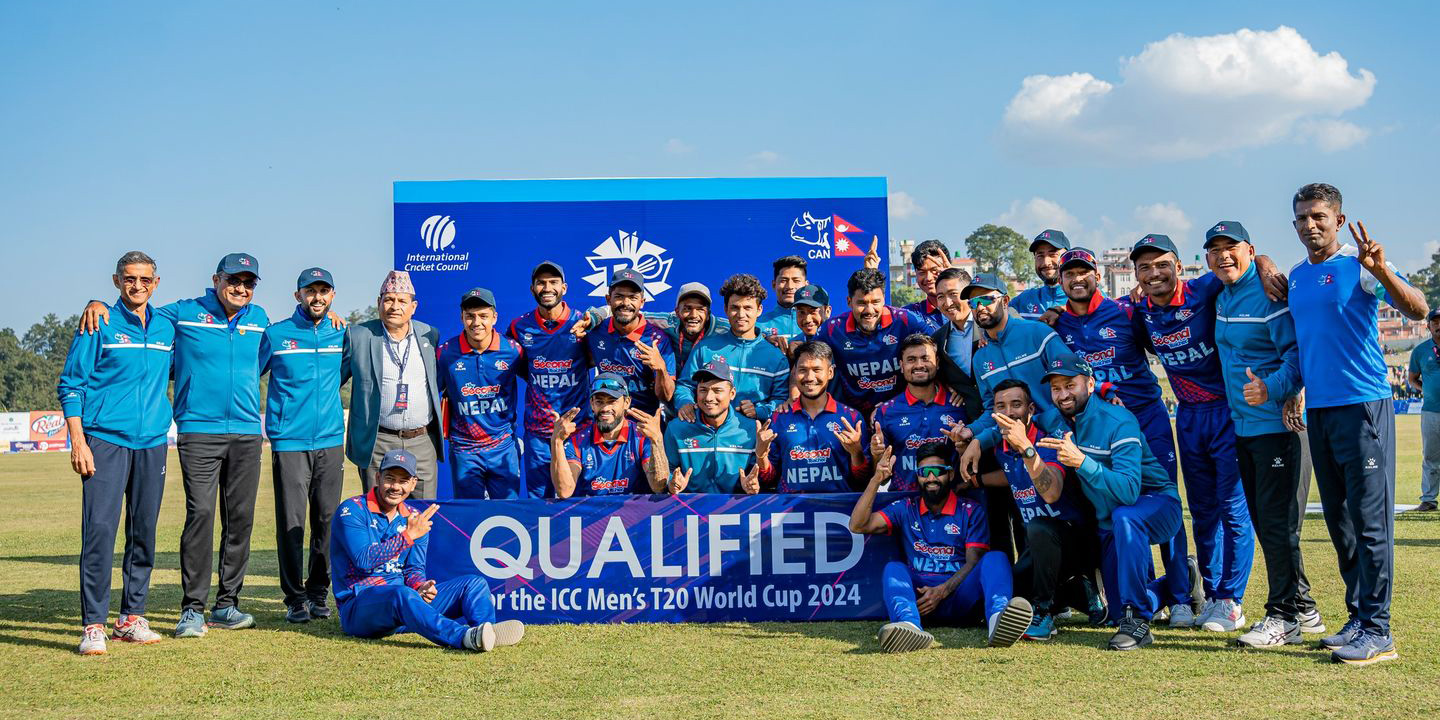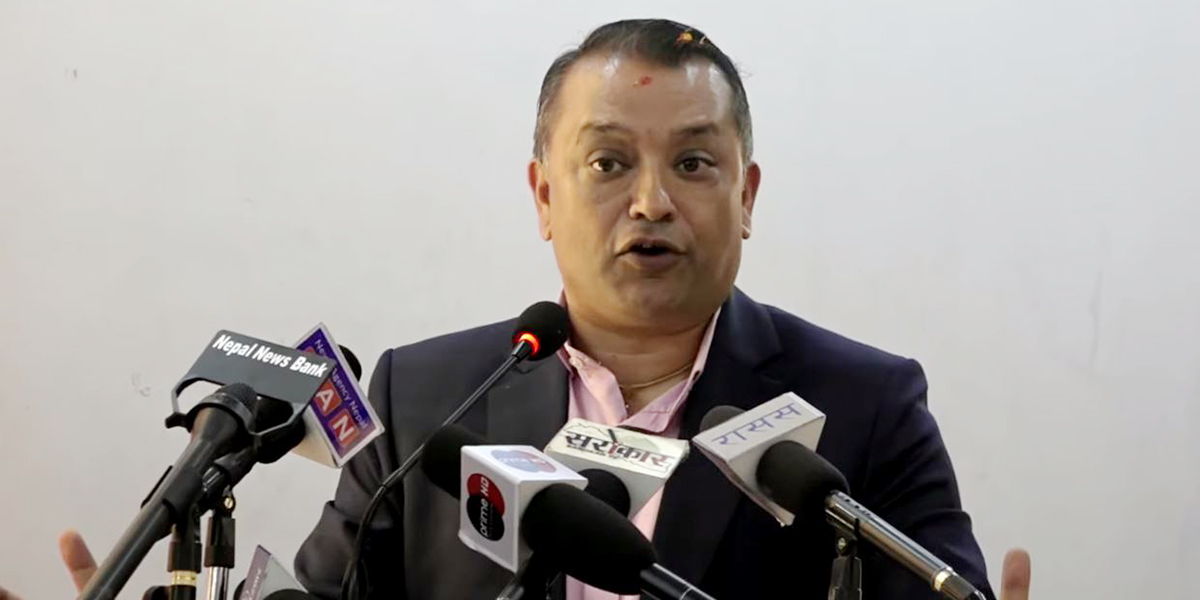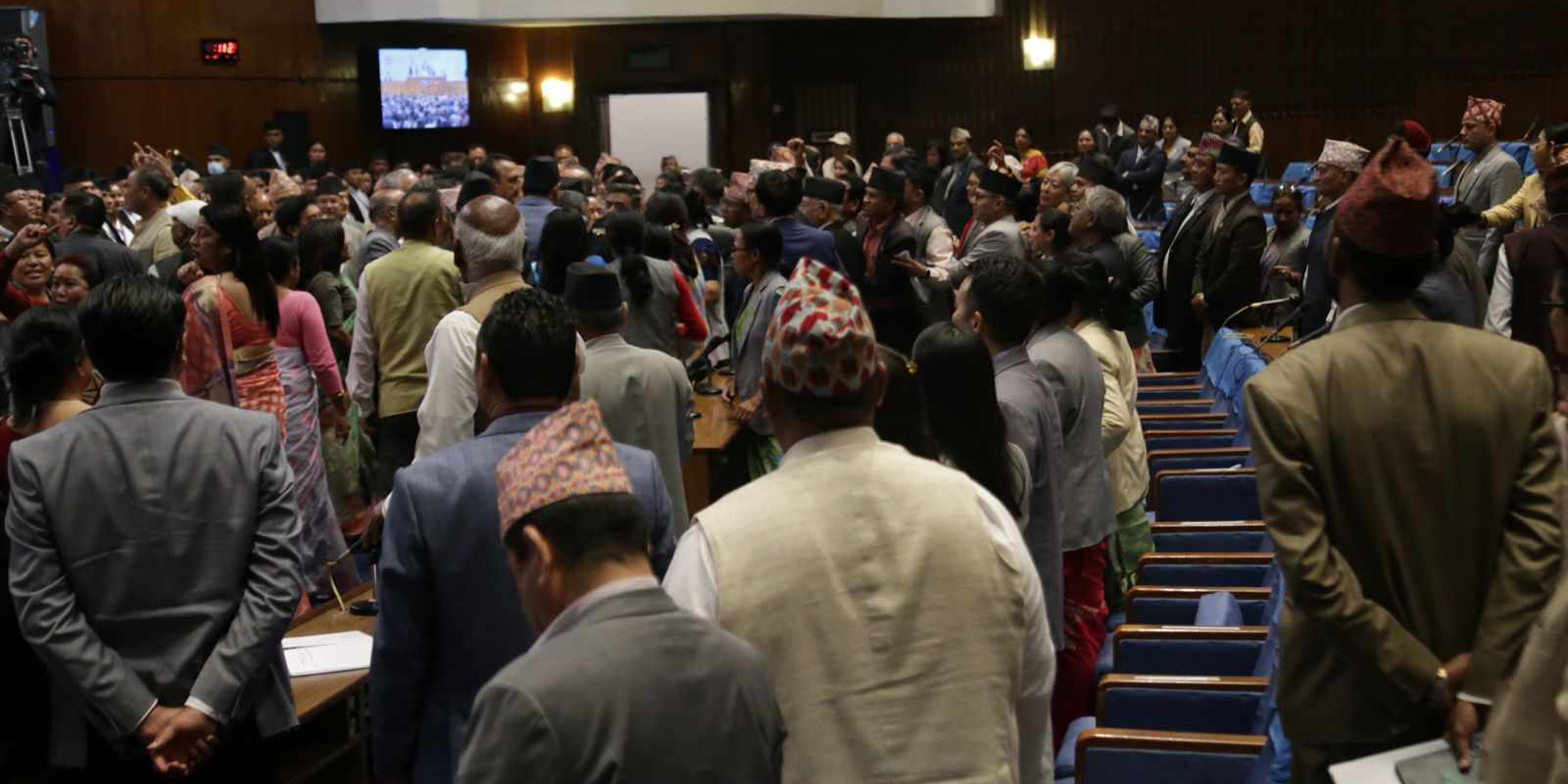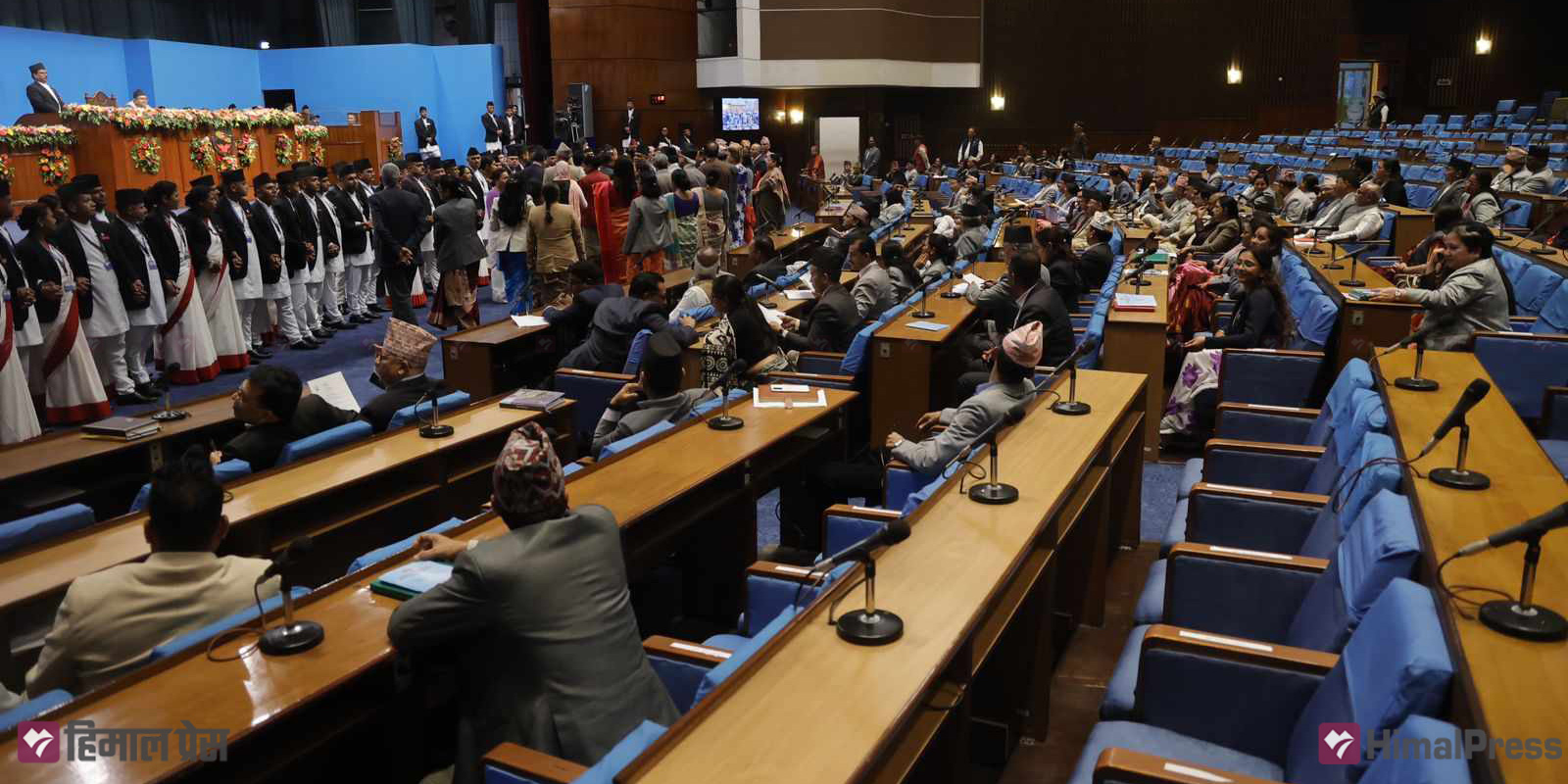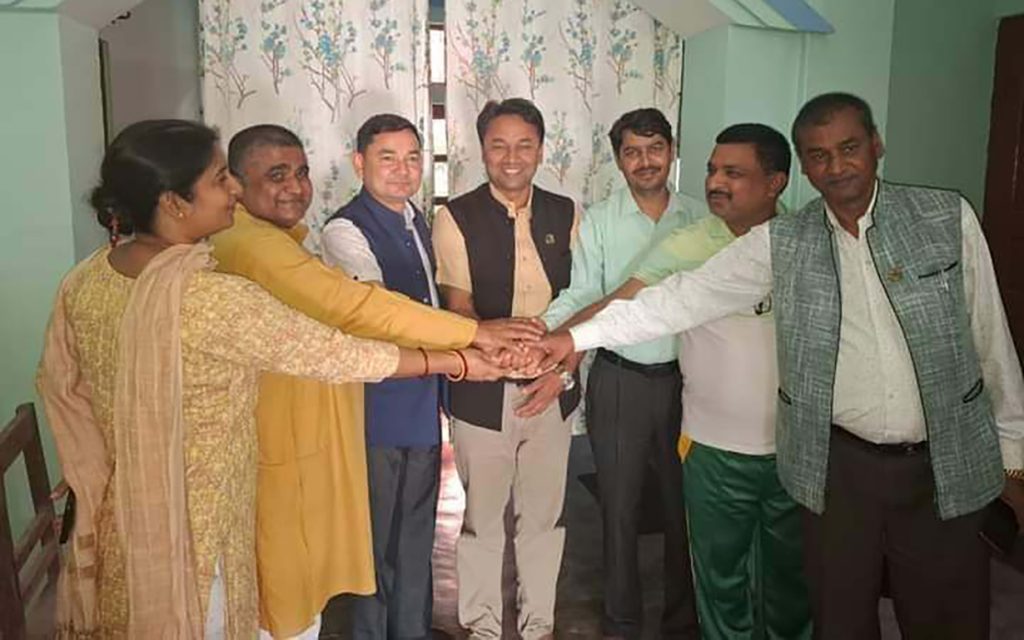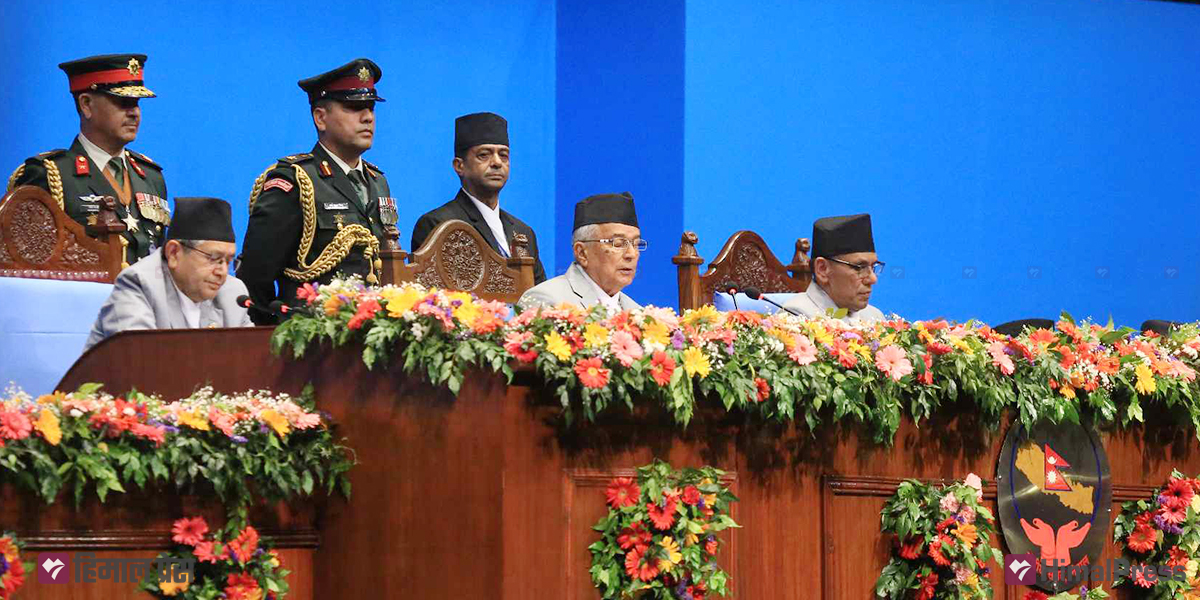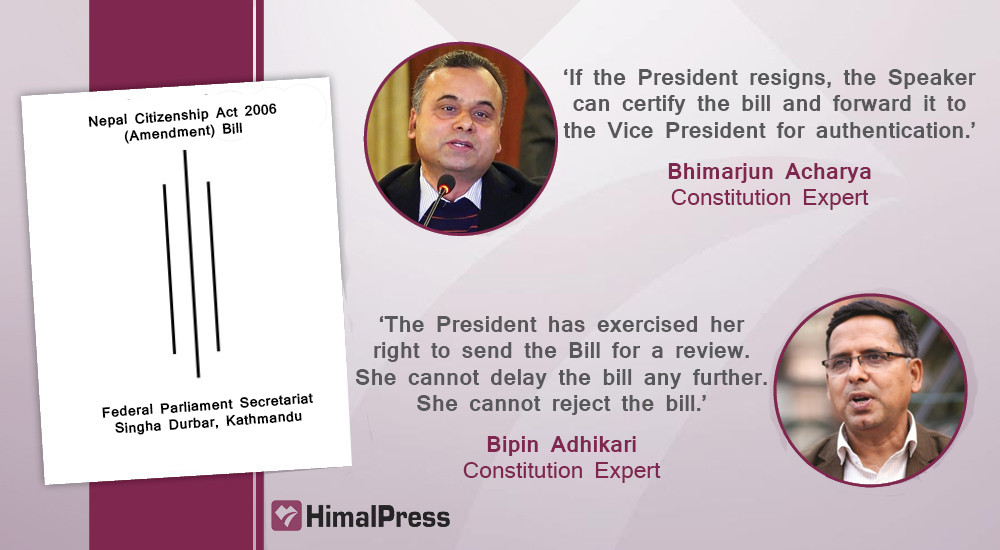
KATHMANDU: The term of the House of Representatives ended on Saturday. As the lower house has completed its term, everybody is concerned about the fate of the Nepal Citizenship Act (Amendment) Bill, 2022.
The bill was forwarded to the Office of the President by Speaker Agni Prasad Sapkota for authentication on September 5. But President Bidhya Devi Bhandari has not authenticated the bill even though it has already been 13 days since the bill was forwarded.
Many argue that as the lower house forwarded the bill for authentication after completing all formalities, it doesn’t matter whether the parliament is active or not. Questions have now been raised on the role of the President as she didn’t take any action on the bill even as the lower house was nearing the end of its term.
According to Article 113 (3) of the Constitution of Nepal, the President can return bills, except the Financial Bill, for reconsideration.
Even though the lower house’s term has ended, constitution expert Bipin Adhikari said the President has the option of authenticating the bill within 15 days. He also said the President doesn’t have any option now but to authenticate the bill.
“The President has exercised her right to send the Bill for a review. She cannot delay the bill any further. She cannot reject the bill,” he added.
According to Article 113 (3) of the Constitution of Nepal, the President can return bills, except the Financial Bill, for reconsideration. Exercising this right, the President returned the bill to the parliament for reconsideration on August 14.
While returning the Bill, the President had sent an eight-point message for drawing the attention of the house.
The parliament can re-endorse the bill returned by the Parliament without any amendment.
Article 113 (4) of the constitution states: “If the President sends back a Bill with the information and if both the Houses reconsiders the bill as it was presented or with amendments, and pass it and present it again to the President, the Bill shall be authenticated by the President within 15 days of its submission.”
Another constitution expert Bhimarjun Acharya said the President has the option of stepping down if she cannot authenticate the bill. “The President can step down on the grounds that the parliament has disobeyed her,” he added.
Search for the third option
Even the President has confirmed that she is looking for a third option. She has been looking for options by holding discussions with editors, leaders of political parties and different stakeholders.
Many have advised the President to keep the Bill on hold. Senior Advocate Surendra Bhandari, one of the many experts invited for consultation by the President said: “The President can ignore the timeframe specified as per Article 113 (4), concluding that the parliament has violated Article 113 (3) of the constitution by not reviwing the bill sent by her for a review.”
When questioned whether the President has the authority to ignore the timeframe specified in the constitution, Bhandari said: “The parliament and the political parties, which made the Article 113 (3) defunct, does not have the authority to question the President why she is not following Article 113 (4). If you are not following constitution, you cannot ask others to follow it.”
Bhandari also said there is a precedence that says timeframe doesn’t apply on complex constitutional issues. “In a case against the dissolution of parliament by Surya Bahadur Thapa, the Supreme Court ruled that timeframe is not applicable on complex constitutional issues. The president can cite this precedence,” he added.
Acharya, however, said there is no point in such arguments. “There is no ground for the President to stop the Bill sent for authentication by parliament,” he added.
If the President resigns, the Speaker can certify the bill and forward it to the Vice President for authentication, he said, adding that a new 15-day timeframe will then be active.
What is the controversy?
After the constitution was promulgated in 2015, the parties had an obligation to amend the Nepal Citizenship Act 2006 to make it compatible with the new constitution. The KP Oli government accordingly brought a bill to amend the constitution.
But parties have differing views on the content of the bill endorsed by both houses.
One of the conflicting issues is the provision related to marital naturalized citizenship retained in the Bill. The bill states that a foreign woman married to a Nepali man can obtain naturalized citizenship once she starts the process of renouncing the citizenship of the country of her origin.
There was a different provision on marital naturalized citizenship in the Bill withdrawn by the incumbent government. The Good Governance Committee of the parliament on June 21, 2020, decided to provide marital naturalized citizenship only seven years after the marriage. Though lawmakers of the Nepali Congress and Madhesh-based parties had opposed the provision, the committee approved the provision with a majority. The committee had said that such women will be given identification card right after marriage until she becomes eligible for marital naturalization citizenship.
But the Oli government put the committee’s report on the back burner.
The Sher Bahadur Deuba-led withdrew the Bill and registered a new bill in the parliament, which removed the seven-year provision for marital naturalization citizenship.
Though UML protested the provision in public forums, it didn’t block the passage of the bill. Sensing UML’s tacit support to the Bill, the government fasttracked the passage of the bill.
“The President has no other option. The President will authenticate it,” Minister for Home Affairs Bal Krishna Khand said.
After the bill was endorsed, the Speaker forwarded it to the Office of the President for authentication. The President returned it, with an eight-point message. But the parliament ignored the message and endorsed it again without any change, and forwarded it for authentication for the second time. Only two days of the 15-day timeframe to authenticate the bill are remaining.
National Assembly member Dr Bimala Poudel said parties represented in parliament also have to be blamed. “The bill finalized after 22-month discussions has been withdrawn. The new bill doesn’t include the seven-year provision decided by the parliamentary committee,” she said, adding: “The government can say five or three years instead of seven. But it is wrong to remove the provision altogether.”
The government, however, is hopeful that the bill will be authenticated. “The President has no other option. The President will authenticate it,” Minister for Home Affairs Bal Krishna Khand said.

 Himal Press
Himal Press 